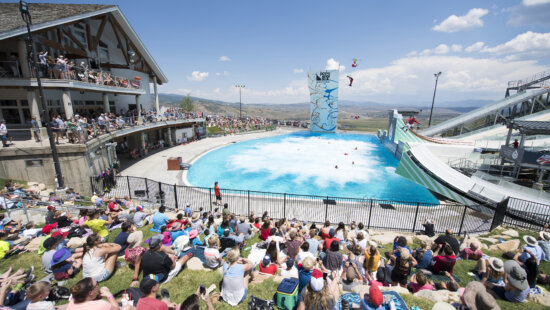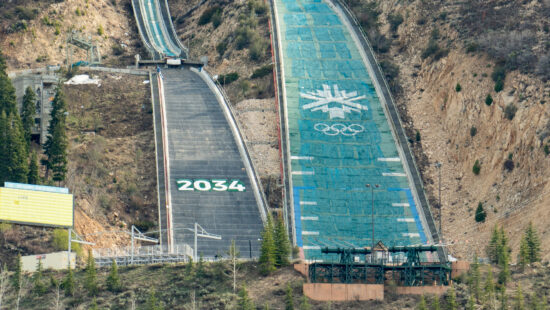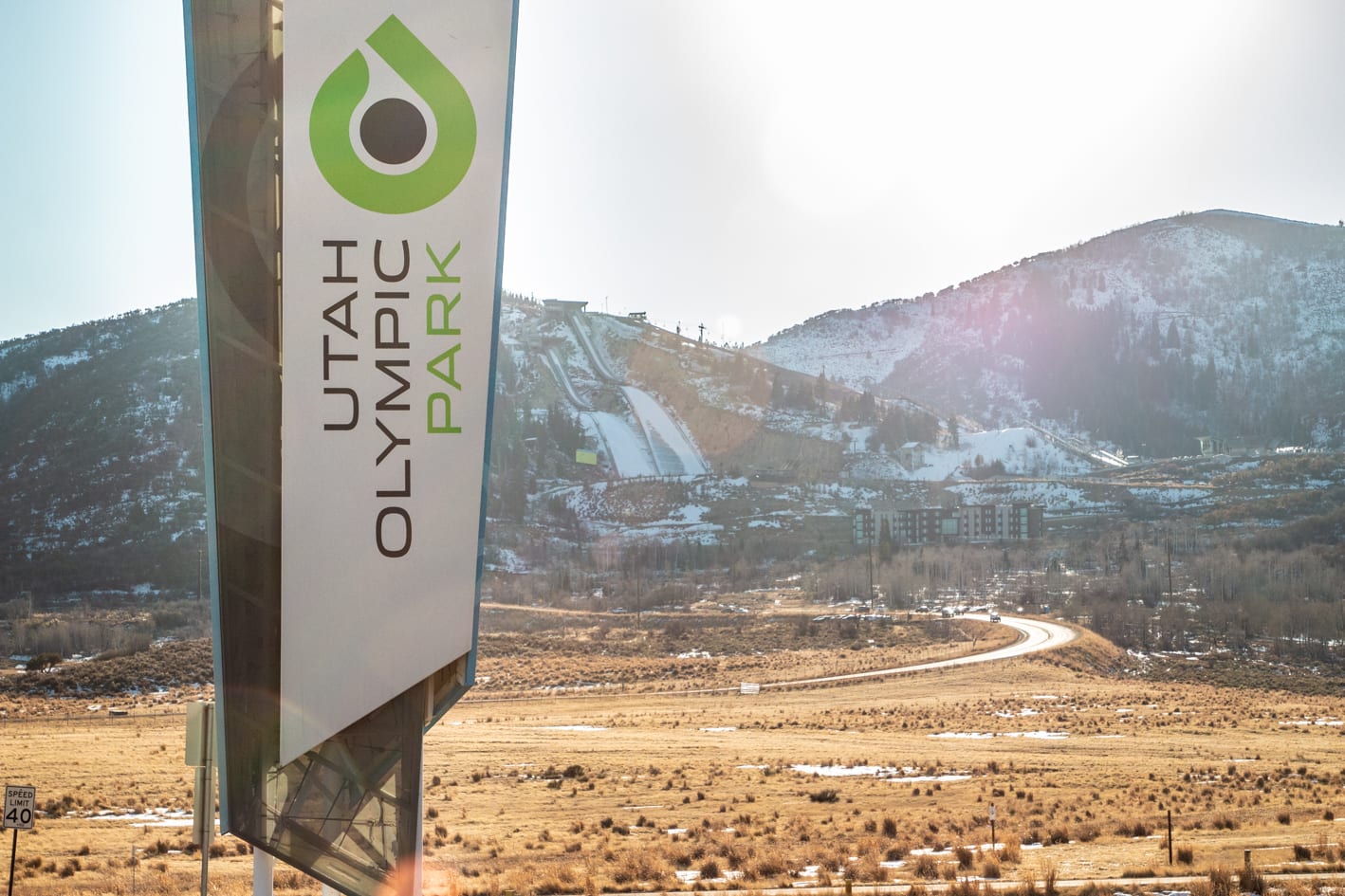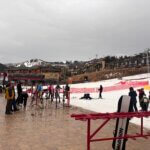Sports
Jon Owen; making luge sleds and Olympic dreams come true
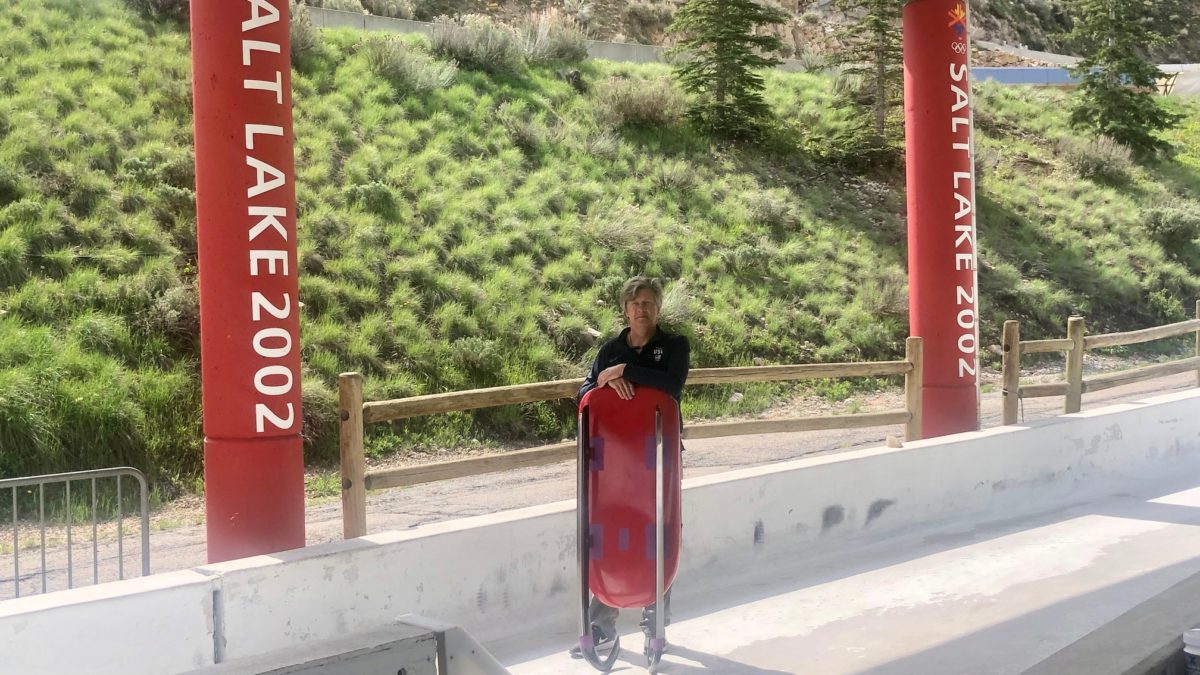
This photo of John Owen, holding a luge sled pod used by Olympic silver medalist Chris Mazdzer, was taken in June, 2022, 22 years after Owen was the first Luger down the 2002 track. Photo: Michele Roepke
PARK CITY, Utah — Olympian Jon Owen is making the luge sleds on which he coaches Park City’s athletes at the Utah Olympic Park. His official titles are Western Program Coordinator and Technical Projects Manager for USA Luge, as well as the coach for the local Youth Sports Alliance and the Wasatch Luge Club. But for the last 20 years, he’s been well-known as more of a ‘sled whisperer’ than anyone else in North America.
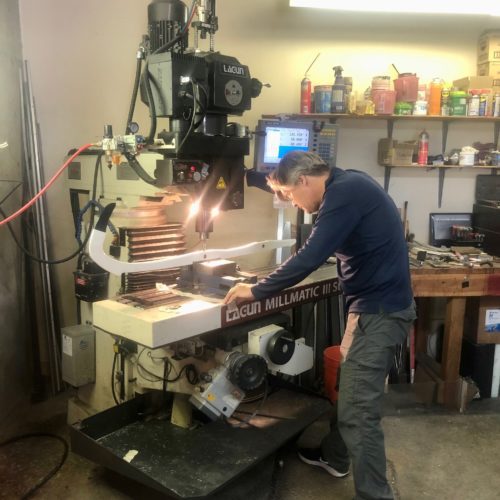
The word luge is loosely translated from the French word for sled.
Zianabeth Owen serves on the Youth and Development Committee and is, as her husband of 34 years proudly puts it, “One of the top International officials,” for the International Luge Federation (FIL).
The two fittingly met on the side of a luge track before he went on to compete in the Calgary 1988 Olympics and she was an alternate for the Albertville 1992 and Lillehammer 1994 Olympics.
Jon creates the sleds and coaches athletes in their hometown of Park City, then Zianabeth has those sleds and those athletes perform globally as an FIL Jury Member in the Whistler 2010 and Sochi 2014 Olympics, and in the Youth Olympics in Innsbruck 2012, Lillehammer 2016, and Lausanne 2020. That, after she was the person in charge of the Salt Lake 2002 Olympic Luge events. Needless-to-say, they are quite the luge power couple.
Jon has mastered the art and the science of luge sled making. When customizing the fiberglass mold to an athlete, he told me, “Think of it like your dining room table where you can pull the leaf out and change the size of the table.”
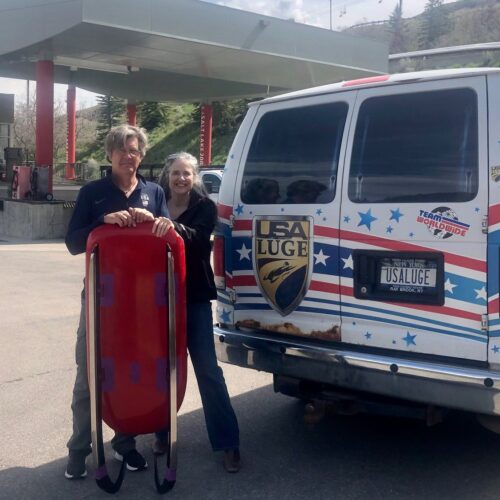
An ordinary sled costs approx. $4,000, and an Olympic sled costs approx. $40, 000, including time and materials. Much of those costs are incurred by value-in-kind (VIK) USA Luge technical partners.
When asked how many sleds any given elite athlete has, Jon chuckled and answered, “That depends on how many they break.” USA National Team athletes have two sleds with interchangeable parts for optimizing track types.
Podium-perennial Germans, by comparison, have more spare parts from which to pull, “Just the German’s R&D budget is roughly equal to the USA’s entire budget, ” said Jon.
Steeringwise, for luge, when explaining the differences between skeleton sleds and bobsleds, he said, “We have the most control of any of the three sports. You’re using the pressure of your body to steer right by pushing down on your left leg and your right shoulder, to go left you do the opposite. You can drive yourself into more trouble.”
He sums it up as, “Because luge has the most steering control, we can be the most out of control.”
It’s a gravity sport so the heavier athletes will go faster, mostly because there are uphill sections, therefore the basic physics of mass and momentum means weight carries the speed. The weight of a sled and of an athlete are on a sort of, as Zianabeth discussed, “handicapping system to ensure fair play.” athletes can wear weigh vests under their speed suits.
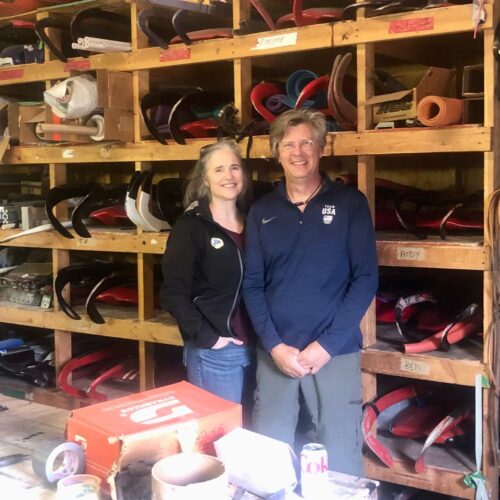
She said, “The sleds are designed to go fast but they’re also designed to be safe. They end at the shoulder so you don’t have to worry about the head snapping back if the G forces push you down. The sleds are rounded so that if you were to come away from the sled and the sled were to hit you, it would minimize bruising or injury.”
Luge sleds’ temperature is taken on the runners or ‘steels’ because, Zianabeth said, “Heat will melt the ice and create a little trail of water for the sleds to run on which will make them faster, so what you don’t want is to have one sled that’s 30 degrees hotter than another one because it melts the ice and creates a huge advantage.” Warmer steels reduces friction.
All the hard work pays off in the form of medals at the Olympic Games won by Erin Hamlin, who in Sochi in 2014 became America’s first female luger to medal, and Chris Mazdzer, who in PyeongChang in 2018 became the first American male to medal in luge singles.
Luge doubles as a discipline in which the Owen’s older son Alanson represented USA at the Youth Olympic Games. Their younger son Ethan, a 2022 Park City High School graduate, who also slid luge for years, is currently working and skiing at Woodward Park City while attending college in Salt Lake City. Watching dad do intricate engineering all these years has inspired Ethan to study a career in underwater welding. Alanson was in the competitive world of rowing for a while. Cross training between luge and rowing behooves both sports as the start motion in luge is a similar stroke as a repetitive row motion.
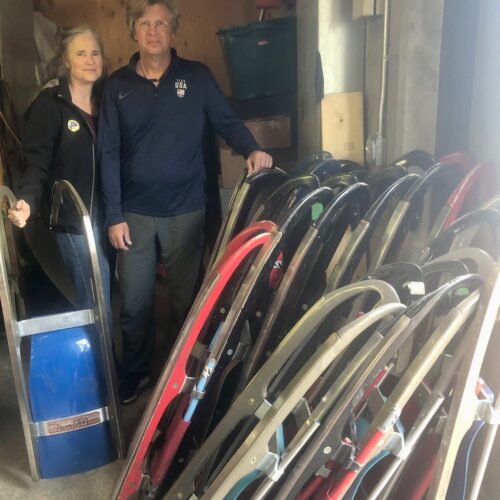
Talk turns to the fact that there’s an opening for Head Coach at USA Luge, a position that Jon is highly qualified to fill and since his children are now grown and flown, why wouldn’t he pursue that path that for many sports enthusiast would think was the end all, be all. Jon is happy right where he is, coaching the development athletes in Park City. He said, “When it comes to sleds, it’s thrilling for me to fight for a 1000ths of a second, but when it comes to sliders, it’s less thrilling to fight with professionals’ personalities. I much prefer working at the youth level. Young sliders are genuinely stoked when they simply get a run in that isn’t ping-ponging off the walls and that’s true sport.” He went on to say, “I tell athletes to take a deep breath before a big math test just like in the start handles of a big luge race. I try to take lessons from the track and apply it to life and make them not just better competitors, but better people.”
Zianabeth and Jon are grateful for the friendships forged around the world as they both continue in Luge.
She said, “The sport is advancing to a more skill-based philosophy rather than a sled-based one.” To which he quipped, (frequently finishing each others’ sentences) “And then I’ll be able to finally retire.”
I asked Jon how it would feel to host the Olympics again in Park City and the coach in him coached my writing as he said, “Write in all capital letters, ‘SWEET!”















